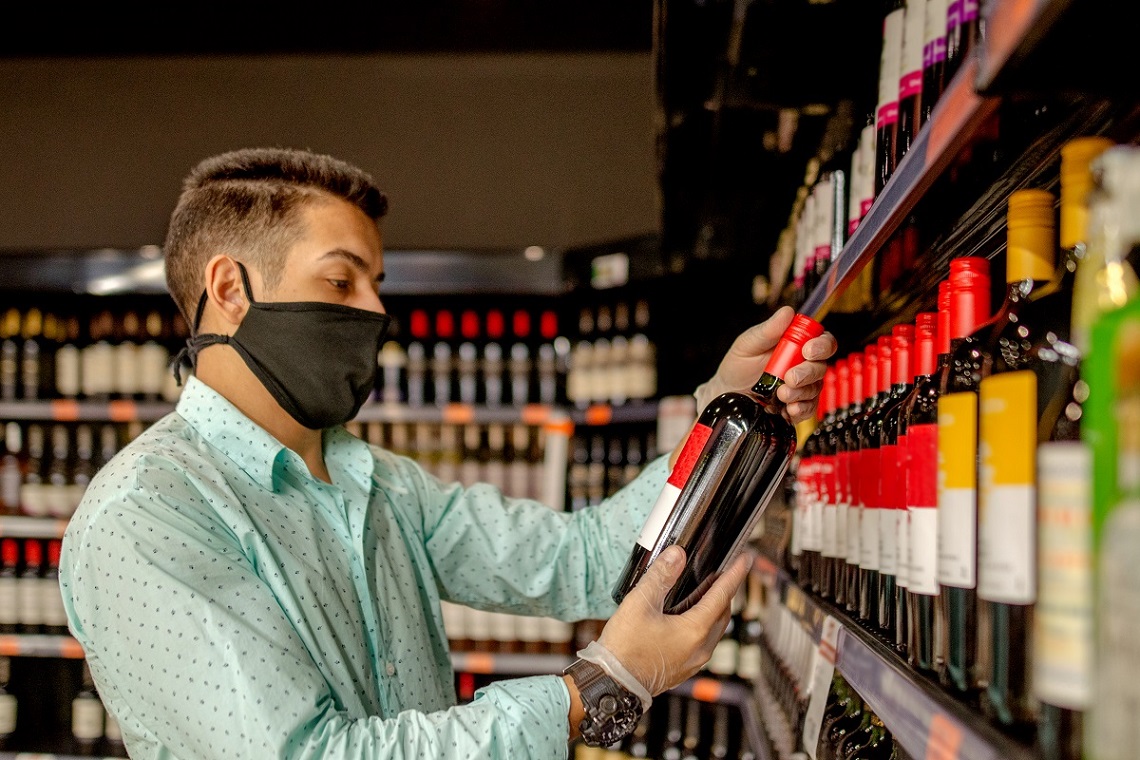Since the start of the pandemic, the wearing of face masks has been mandated to differing degrees in a range of settings across the country.
In areas where lockdowns are in place, masks are generally required in all public settings, including in retail stores. While most people understand and accept the importance of wearing a mask at the moment, it remains a point of contention for some. This was demonstrated in a recent viral video from a Sydney liquor store, showing an interaction between a customer refusing to wear a mask and the store manager then refusing service.
Retail Drinks Australia said it has received an increasing number of enquiries from members in recent months about situations like this, as the industry seeks to clarify the responsibilities of retailers when it comes to mask wearing.
Michael Waters, Retail Drinks CEO, said these enquiries have related to mask-wearing by both customers and staff members and often seek to clarify points of misinformation circling online.
“One of the most common questions received in regards to mask-wearing is whether a retailer is required to enforce mask-wearing in stores,” Waters told National Liquor News.
“Retail Drinks issued reminders to all its members that retailers are not responsible for the enforcement of wearing masks and this is the responsibility of the police. We are aware of some misinformation that has been circulating in regards to this, including suggestions that store-owners themselves are responsible. Rest assured, this is not the case.”
All the different information and misinformation currently swirling around can make it hard for retailers to know what they should do when a customer isn’t wearing a mask. National Liquor News asked Waters about what Retail Drinks suggests in these situations.
He said: “In the event of customers walking into a store without a mask, the store owner or staff member should politely remind the customer to pop their mask on and in most cases they will comply.
“In the odd case a customer may advise that they have a medical exemption and therefore do not have to wear a mask. In this instance, the staff member has a right to ask the customer to produce the relevant documentation. Should the customer ever become aggressive with a staff member, they would be advised to contact police immediately.
“Retailers can use their discretion to refuse service to customers who are refusing to abide by COVID-19 public directions, such as mask wearing or failing to use a QR code to check in, in the same way that they can refuse service to minors and intoxicated persons.”
If a retailer is ever unsure about the mask-wearing regulation requirements in their specific area, Waters said they can contact their relevant state or territory government health department or liquor regulator for advice and assistance. Retail Drinks members also have the option of calling the member hotline (on 1300 451 213) at any time to access free advice, support and resources across a broad range of areas, including liquor licensing and regulations, but also human resources, employment law and workplace relations, mental health and wellbeing, leasing and tenancy, and Fair Trading and consumer law.
Other resources available specifically related to trading in the pandemic include the Social Distancing Guidelines for Retail Liquor Stores, available on the Retail Drinks website for all retailers, regardless of whether they are a member.

